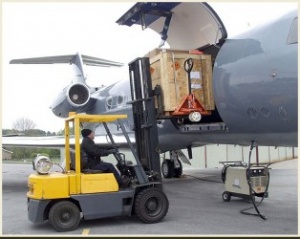IATA warns against knee-jerk terror reaction

Officials at the International Air Transport Association (IATA) has warned governments around the world not to act unilaterally, as the aviation industry seeks to minimise the fall out from the Yemeni bomb plot.
Both passenger and cargo carriers are concerned governments around the world will tighten security to such an extent that measures will be detrimental to business.
In turn the IATA has called for a measured response.
“Effective solutions are not developed unilaterally or in haste,” said IATA director general Giovanni Bisignani at the opening of AVSEC World in Frankfurt.
“We have seen many cases where these have unintended consequences. It is still early days. Industry is cooperating with government directives on targeted actions for Yemen-origin cargo.
“If there are any longer-term adjustments required, we must do so with all the facts in hand with measures targeted to meet specific risks,” added Bisignani.
ADVERTISEMENT
Burden of Risk
Following the latest terror attacks, the IATA has again argued the burden of risk must be shared by all parties involved in the shipment of cargo.
“The entire supply chain, from manufacturer to airport, has a responsibility for secure shipments,” continued Bisignani.
“The supply chain approach must be driven by government and industry cooperation on investment, processes, technology and risk assessment. Many countries, including the UK and the US, have advanced supply chain solutions.”
He went on to explain airport screening cannot be solely responsible for security, arguing additional work was needed before cargo reached the airport.
“Airport screening cannot be our first line of defence but it is an effective complement to intelligence and supply chain solutions,” continued Bisignani.
“Currently, there is no government certified technology to screen standard size pallets and large items.
“There is some promising technology but it is taking far too long to move from the laboratory to the airport.
“We must speed up the process,” he added.
Security
Cargo security has been top of the global agenda following the discovery of two suspect packages in Dubai and the UK last Friday.
The IATA argues airlines carry 35 per cent of the total value of goods traded internationally, totaling some 26 million tonnes of international cargo annually.
Authorities in the United States have moved to reassure carriers this trade will not be disrupted.
“Security cannot bring business to a standstill,” said John Pistole, who was made head of the US Transportation Security Administration (TSA) earlier this year, at an aviation security conference on Tuesday.
“We must strike that balance (between security and business).
“The US government understands this well,” he concluded.

